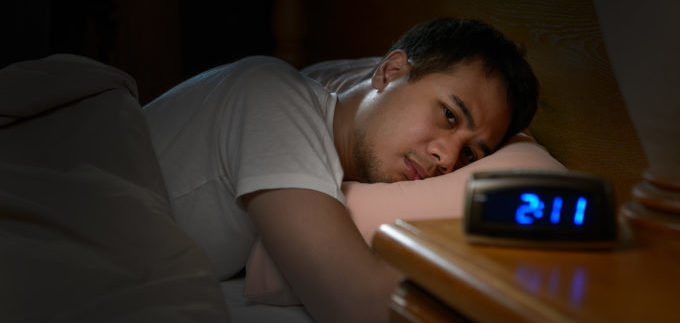Depression
Emotional ups and downs are a normal part of life. This is especially true during your teens! However, if you find yourself feeling down more days than not, and it’s affecting your everyday life, you may have clinical depression. Clinical depression is a common, and treatable, chronic medical condition.
What does depression feel like?
Depression feels different for everyone. You could have trouble focusing on school, not feel like hanging out with your friends, or be really tired. Or, you could feel angry and restless and have trouble sleeping. Depression doesn’t always feel like sadness—it can also take the shape of emotional numbness, or physical aches and pains. Depression should not be confused with normal mood swings. Feeling sleepy, weepy, or irritable for a few days can often be chalked up to the range of human emotion–not to mention the hormone havoc that happens during your teens! But if you’re feeling “off” for a few weeks or more, have changes in sleep or appetite, or don’t feel like doing the things you usually enjoy, you should check in with a school counselor or a medical provider.
Depression is an illness, and not all illnesses have clear causes. Current research indicates that genetic, environmental, biological, and psychological factors can contribute to depression. It’s important to remember that although traumatic or stressful events can certainly trigger depression, you can develop the condition without any obvious reason. Unfortunately, like many mental health conditions, there are a lot of myths and misunderstandings around depression. If you’re depressed, you can’t just “snap out of it” or “think positively”. You can, however, seek treatment and learn ways to best manage the emotions to help you feel better.
I think I might be depressed. What do I do?
First of all, remember that you can and deserve to feel better. Depression is a common and treatable medical condition. Tell a trusted adult, a medical professional, or a school counselor how you’ve been feeling. Mention the possibility that you could be depressed. Therapy and medication, ideally used in combination, are first-line treatments for depression.
Therapy
Talk therapy is a very effective treatment for depression. You can speak with your school counselor or doctor about getting referred to a therapist who specializes in treating teen depression. Therapy is a safe space for you. This means that you are in charge of what you want to get out of your sessions. You can explore experiences and issues in your life, discuss and work through patterns that may no longer serve you, and find better ways to handle crises.
There are many different types of therapy. It can sometimes take a little while to find the style that is right for you! Cognitive Behavioral Therapy is a short-term, goal-oriented type of therapy that targets negative thinking patterns and is very effective in treating depression. Or, you may respond better to long-term talk therapy that delves deeper into your past and reasons for being you. Don’t be afraid to try out a few different therapists or talk to your current therapist about what works for you and what doesn’t.
Medication
Like many chronic conditions, clinical depression can be successfully treated with medication. Antidepressants are pills you take every day that work by balancing your “neurotransmitters”, or chemicals in your brain that affect the way you feel. It may take a few weeks for you to notice a change in your mood, and you may have to adjust the type of medication or the dosage before you find the right fit. This may involve conversations with a medical or mental health provider about your needs. There are also certain antidepressants that are safer or more effective for teens. Your medical provider can help determine the best starting dose for you.
Unfortunately, medication misconceptions still exist. If you have clinical depression, you can’t simply feel better through willpower and positive thinking. Taking medication to help a medical condition does not make you weak or indicate that you’re taking an easy way out. And depression meds aren’t “happy pills” that will prevent you from ever feeling sad! Antidepressants won’t change your personality—you can keep your dark sense of humor!—or make you happy all the time. They will, however, allow you to feel a range of emotions that aren’t numbed by the symptoms of depression.
Many people report that getting their medication right is like getting glasses. Your medication won’t give you special skills like x-ray vision, but it will correct an imbalance so that you can see clearly. For some, medication will become a life-long part of their daily routine, like brushing your teeth. For others, medication is a short-term tool to work through a tough time and develop positive coping mechanisms. Never stop using your medication without the guidance of a medical professional!
Talk Therapy and Medication
Combined treatment plans that include talk therapy and medication have been proven to be most effective. Medication can often provide the much-needed boost of brain chemicals that allows for the motivation and energy to work through issues and develop coping strategies in therapy.
My friend is depressed. How can I help them?
If a friend, partner, or family member talks to you about being depressed, let them know that you’re there for them. Encourage them to seek help. It can be hard to speak out about mental health issues. Acknowledging their bravery and telling them that you’re there to listen can mean a lot. You can assure your friend that you love them and want to help, and ask how you can best do that. Everyone is different. Your friend might want you to sit with them while they call a counselor to make an appointment, to come over with a distracting movie, or to remind them of how loved they are on really bad days. Even though you want to be a good friend, remember that you’re not responsible for or capable of managing their mental health for them.
Get Professional Help
One of the most helpful things you can do is to encourage them to seek help. Point out resources like the guidance counselor, doctor, or another safe adult, or suggest a helpline, like those at the bottom of this page or 1-800-273-TALK , which also has a chat service. Remind them that depression is highly treatable, and that they deserve to feel better.
Sometimes, when a depressed friend confides in you, you can feel in over your head. Don’t put pressure on yourself to know exactly the right things to say or do—you may be a good friend, but you are not a professional. Know the warning signs of suicide. If you think your friend is severely depressed or in danger of hurting themselves, get a safe adult involved. If you feel overwhelmed, or if your friend says things like “I feel like I can only talk to you about this,” remember that it is not your responsibility to make them feel better. You can tell them that you’re concerned and encourage them to talk to a professional, but you can only be a friend—not a doctor or a therapist.
Other Resources
National Suicide Prevention Lifeline:
24/7, Call 1-800-273-8255 (TALK)
En espanol 1-888-628-9454
Deaf and hard of hearing 1-800-799-4889
Chat
Crisis Text Line
24/7, text HOME to 741741 to connect with a Crisis Counselor
Trevor- Lifeline
Call 866-488-7386 24/7
Text “TREVOR” TO 1-202-304-1200
Monday through Friday, 3 pm-10pm ET, 12 pm-7 pm PT
Trans Lifeline
24/7, call in the U.S 877-565-8860, in Canada 877-330-6366
Staffed by trans-identified trained volunteers
This information is not intended to provide medical advice, professional diagnosis, opinion, treatment or services, only general information for education purposes only.


